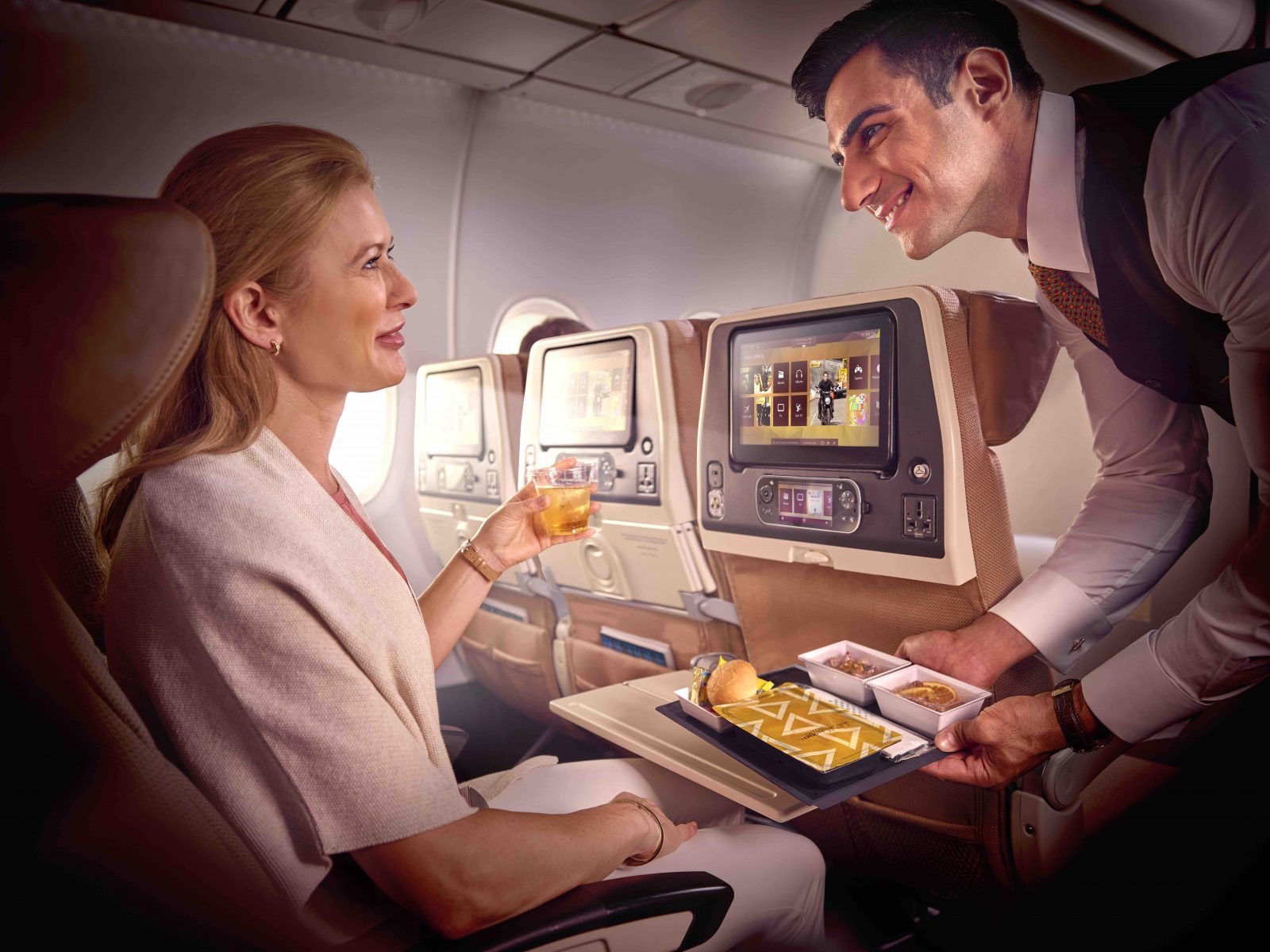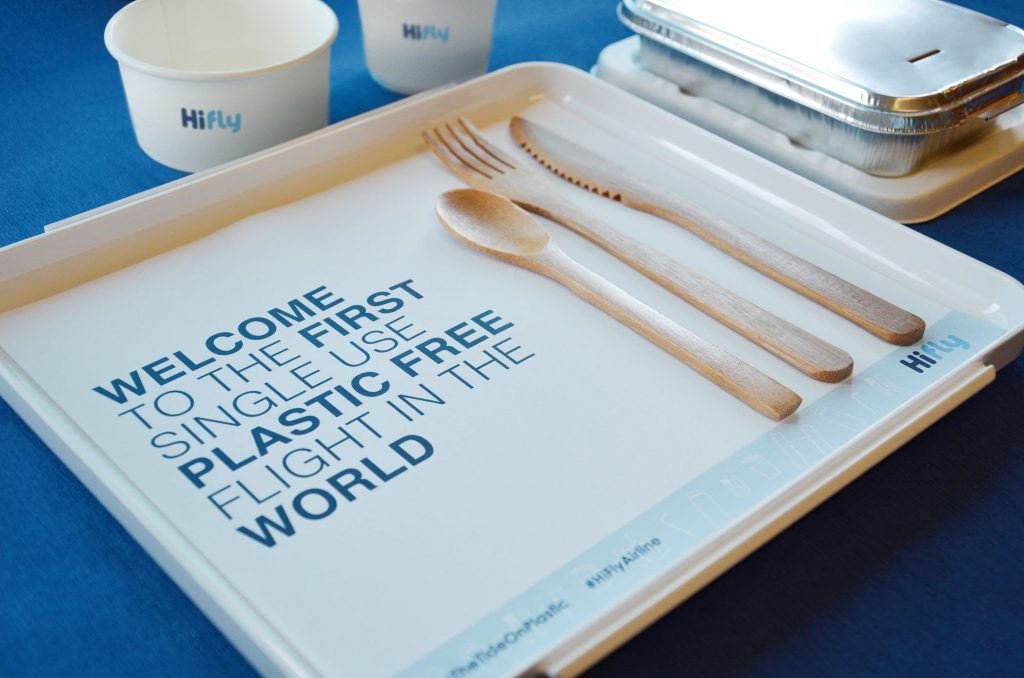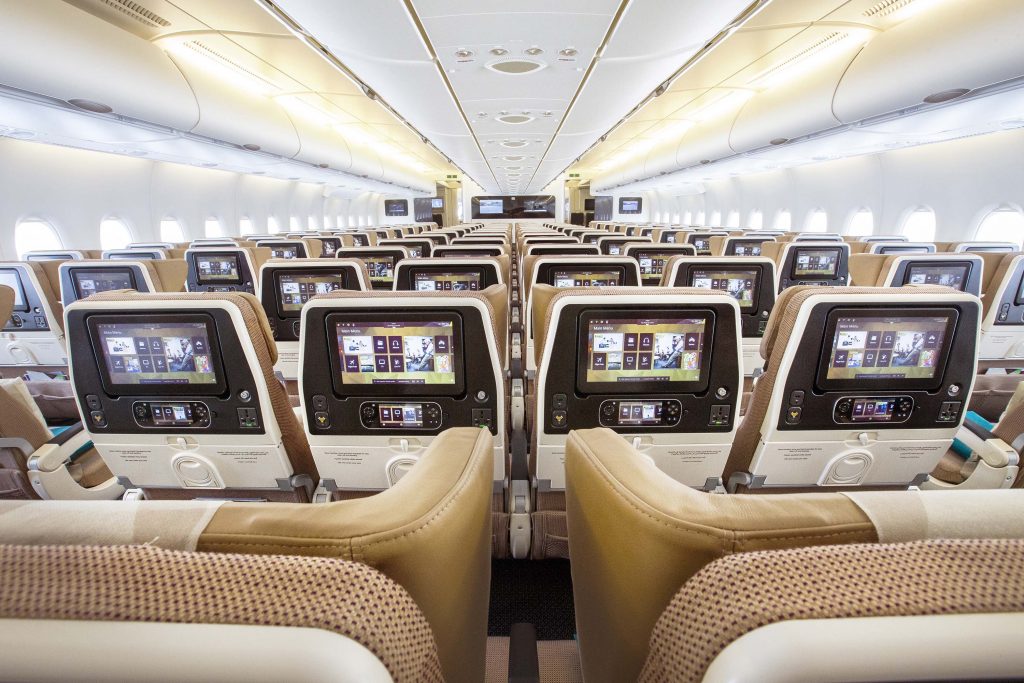
Etihad Airways plans to operate a flight without any single-use plastics onboard to mark Earth Day and to raise awareness about the effects of plastic pollution on the environment. The Abu Dhabi-based airline will become the first airline in the Middle East to operate such a flight – Portuguese charter and wetlease airline HiFly became the first airline in the world to operate a single-use plastic free flight at the end of 2018.
Etihad Airways flight EY484 will depart Abu Dhabi bound for Brisbane on 21st April and land on 22nd April which is officially marked as Earth Day. The airline says that while it was easy to swap out some of the 95 different single-use plastics found across the airline’s different cabins, other onboard products required more of an innovative approach to source eco-friendly alternatives.
The airline has worked with suppliers to make sure some products don’t come wrapped in disposable plastic wrappers, while paper coffee cups that normally come with a plastic sealant were swapped out for an environmentally friendly edible alternative which are made entirely out of natural grain products.

In-flight economy blankets have been made out of recycled plastic bottles and Etihad worked with its suppliers of amenity kits to come up with sustainable alternatives. Cups, cutlery, dishes, headset bags, toothbrushes and even plastic cart seals have all been replaced with plastic-free alternatives. If a sustainable replacement product couldn’t be found, it simply won’t be loaded on the flight.
On just this one flight, Etihad estimates that more than 50 kilograms of single-use plastics will be saved from going to landfill. And the airline clearly feels inspired with what it has learnt from this experiment – by June, Etihad hopes to have reduced single-use plastics by 20%. By the end of the year, 100 tonnes of plastic will have been removed from in-flight service.
“There is a growing concern globally about the overuse of plastics which can take thousands of years to decompose,” explained Tony Douglas, chief executive of the Etihad Airways Group.
“We discovered we could remove 27 million single-use plastic lids from our inflight service a year and, as a leading airline, it’s our responsibility to act on this, to challenge industry standards and work with suppliers who provide lower-impact alternatives.”
At the end of last year, charter carrier HiFly operated 16 single-use plastic free flights, becoming the first airline in the world to achieve such a feat. The airline says it hopes to rid all of its flights of all single-use plastic by the end of this year. In its initial experiment, HiFly discovered that such a move would save 500 grams of plastic to passengers – an amount that quickly mounts when multiplied across hundreds or even thousands of flights.

HiFly used a range of eco-friendly alternatives including plant-based catering disposables made from materials that were either renewable, lower carbon, recycled or even able to be composted with food waste. Plastic cutlery was replaced with bamboo cutlery that can be washed and used again, while plastic bottles were swapped out for reusable glass alternatives.
More and more airlines are finally waking up to the scourge of plastic pollution, although strict bio-security regulations sometimes make efforts to reduce waste an uphill challenge. Over the last couple of years, we’ve seen leading carriers like American Airlines, Air Canada, United Airlines, KLM and many others announce plans to reduce the amount of plastic they use.
What Etihad and HiFly are proving is that a lot more can be achieved if airlines really put their minds to it.
Mateusz Maszczynski honed his skills as an international flight attendant at the most prominent airline in the Middle East and has been flying ever since... most recently for a well known European airline. Matt is passionate about the aviation industry and has become an expert in passenger experience and human-centric stories. Always keeping an ear close to the ground, Matt's industry insights, analysis and news coverage is frequently relied upon by some of the biggest names in journalism.







